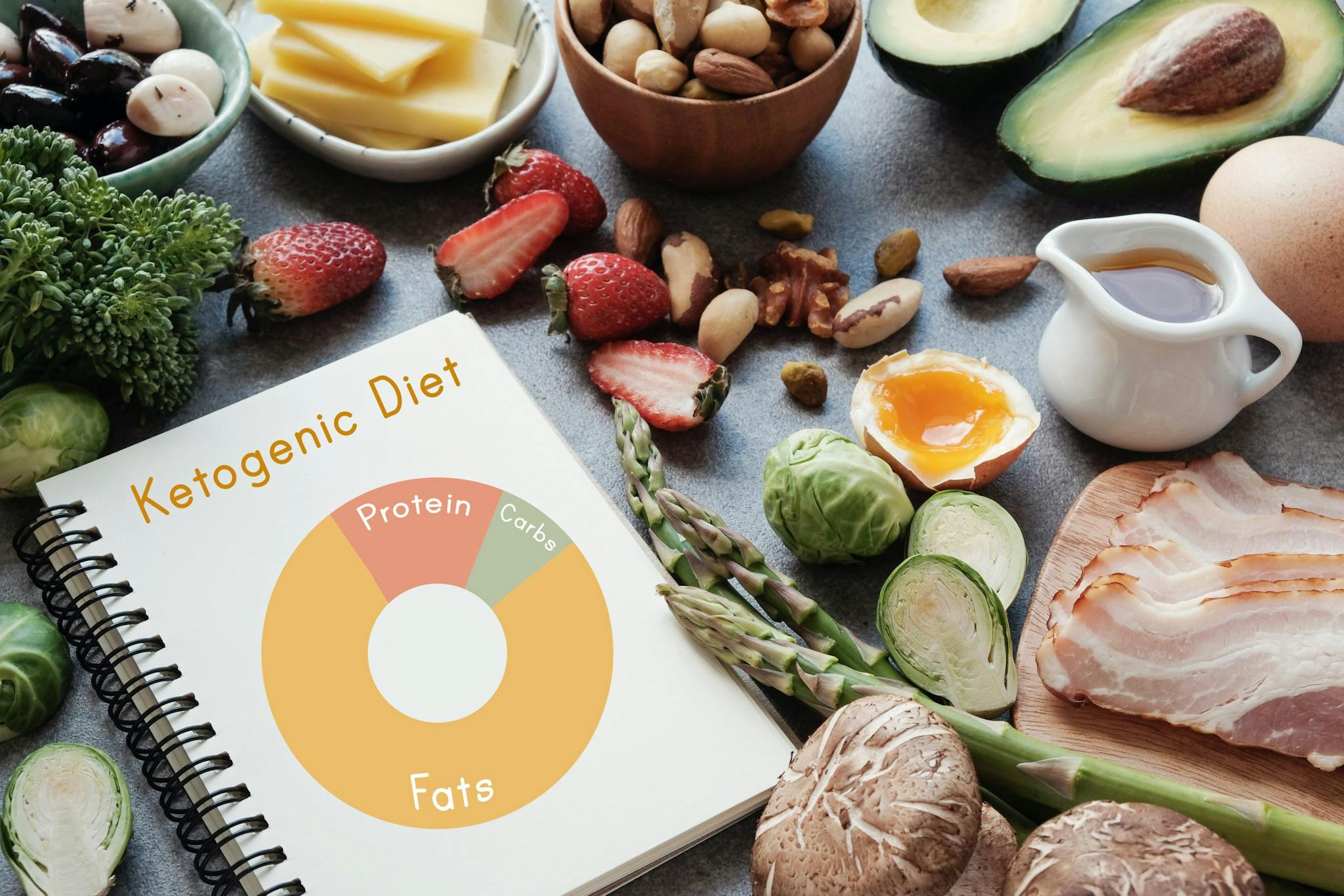The safety and effectiveness of the ketogenic diet (keto diet) can vary from person to person, so it’s essential to understand the potential health effects of Keto before embarking on the diet. Here’s a breakdown of the potential pros and cons of the keto diet:
Potential Advantages of the Keto Diet
- Weight Loss: The keto diet is known for its effectiveness in weight loss. By drastically reducing carbohydrate intake and increasing fat intake, the body enters a state of ketosis, where it burns fat for fuel instead of carbohydrates. This can lead to rapid initial weight loss, primarily due to water weight loss and decreased appetite.
- Blood Sugar Control: Some studies suggest that the keto diet may help improve blood sugar control, especially in individuals with type 2 diabetes. By limiting carbohydrate intake, blood sugar levels can become more stable, reducing the need for insulin or other diabetic medications. However, people with diabetes should carefully monitor their blood sugar levels and work closely with a healthcare provider when making dietary changes. The less restrictive Mediterranean diet has been found to be similarly effective as Keto in controlling glucose and thus may be a better, more sustainable option for some people with diabetes.
- Cholesterol and Heart Health: The effects of the keto diet on cholesterol levels are mixed. While some individuals may experience improvements in cholesterol profiles, others may see an increase in LDL cholesterol (often referred to as “bad” cholesterol) levels. It’s crucial to monitor cholesterol levels regularly, especially for those with a history of heart disease or high cholesterol.
Potential Downsides of the Keto Diet
- Nutrient Deficiencies: Because the keto diet restricts many fruits, vegetables, and whole grains, there’s a risk of nutrient deficiencies, particularly in essential vitamins and minerals like vitamin C, vitamin K, magnesium, and potassium. To mitigate this risk, it’s essential to incorporate a variety of nutrient-dense foods into the diet and consider supplementation if necessary.
- Digestive Issues: Some people may experience digestive issues such as constipation or diarrhea when starting the keto diet. This is often due to a lack of fiber from whole grains and certain fruits and vegetables. Increasing fiber intake through low-carb, fiber-rich foods like avocados, nuts, and seeds can help alleviate these symptoms.
- Keto Flu: Many individuals experience what’s commonly referred to as the “keto flu” during the initial transition to the keto diet. Symptoms may include fatigue, headache, dizziness, irritability, and nausea. Symptoms of the keto flu typically subside within a few days to a week as the body adjusts to using fat for fuel instead of carbohydrates. Steps you can take to avoid the keto flu include starting with a low-carb diet first to ease the transition, drinking plenty of water, and consuming more healthy fats like avocado.
- Thirst: You may experience excessive thirst and/or dry mouth, especially in the initial phase of the keto diet because your body is using up your glycogen stores which contain water. High levels of ketones in the body can also lead to dehydration and an electrolyte imbalance. Consider taking an electrolyte supplement to combat thirst and dehydration while on the keto diet.
- Long-Term Sustainability: One concern with the keto diet is its long-term sustainability. Many people find it challenging to maintain such a restrictive diet over time, leading to potential weight regain once they resume a more typical eating pattern. It’s essential to develop a balanced, sustainable approach to eating that can be maintained in the long term.
“The keto diet is often a very helpful way to jump start a weight loss journey. It generally is associated with less hunger as your body moves to a state of ketosis and burns fat,” said Dr. Justin Jones, a Revere Health physician who provides Family Medicine, Weight Management, and Urgent Care services. “However, it rarely is sustainable and, in most cases, should be a transition eating plan that leads to a new way of eating where one eats smaller portions, limits simple carbohydrates, and lowers overall calories. The best eating plan is the one that can be sustained over a lifetime.”
In conclusion, the keto diet can be effective for weight loss and may offer certain health benefits for some individuals, such as improved blood sugar control. However, it’s not suitable for everyone, and there are potential risks and side effects to consider. Consulting with a healthcare provider or a registered dietitian before starting the keto diet is recommended, especially for those with underlying health conditions or specific dietary needs. Additionally, it’s essential to focus on overall dietary quality and balance, rather than solely relying on any one specific diet for long-term health and wellness.
Need help with weight loss? Revere Health offers Weight Loss and Nutrition services in Provo, Eagle Mountain, and Santaquin to help you find a long-term solution to weight management.

![]() Medically reviewed by Justin Jones MD.
Medically reviewed by Justin Jones MD.





